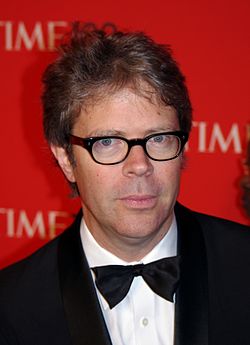Jonathan Franzen Quote
Because after all, Bob said, any wealth gained by a person beyond what he can produce by his own labor must have come at the expense of nature or at the expense of another person. Look around. Look at our house, our car, our bank accounts, our clothes, our eating habits, our appliances. Could the physical labor of one family and its immediate ancestors and their one billionth of the country’s renewable resources have produced all this? It takes a long time to build a house from nothing; it takes a lot of calories to transport yourself from Philadelphia to Pittsburgh. Even if you’re not rich, you’re living in the red. Indebted to Malaysian textile workers and Korean circuit assemblers and Haitian sugarcane cutters who live six to a room. Indebted to a bank, indebted to the earth from which you’ve withdrawn oil and coal and natural gas that no one can ever put back. Indebted to the hundred square yards of landfill that will bear the burden of your own personal waste for ten thousand years. Indebted to the air and water, indebted by proxy to Japanese and German bond investors. Indebted to the great-grandchildren who’ll be paying for your conveniences when you’re dead: who’ll be living six to a room, contemplating their skin cancers, and knowing, like you don’t, how long it takes to get from Philadelphia to Pittsburgh when you’re living in the black.
Because after all, Bob said, any wealth gained by a person beyond what he can produce by his own labor must have come at the expense of nature or at the expense of another person. Look around. Look at our house, our car, our bank accounts, our clothes, our eating habits, our appliances. Could the physical labor of one family and its immediate ancestors and their one billionth of the country’s renewable resources have produced all this? It takes a long time to build a house from nothing; it takes a lot of calories to transport yourself from Philadelphia to Pittsburgh. Even if you’re not rich, you’re living in the red. Indebted to Malaysian textile workers and Korean circuit assemblers and Haitian sugarcane cutters who live six to a room. Indebted to a bank, indebted to the earth from which you’ve withdrawn oil and coal and natural gas that no one can ever put back. Indebted to the hundred square yards of landfill that will bear the burden of your own personal waste for ten thousand years. Indebted to the air and water, indebted by proxy to Japanese and German bond investors. Indebted to the great-grandchildren who’ll be paying for your conveniences when you’re dead: who’ll be living six to a room, contemplating their skin cancers, and knowing, like you don’t, how long it takes to get from Philadelphia to Pittsburgh when you’re living in the black.
Related Quotes
About Jonathan Franzen
Franzen has contributed to The New Yorker magazine since 1994. His 1996 Harper's essay "Perchance to Dream" bemoaned the state of contemporary literature. Oprah Winfrey's book club selection in 2001 of The Corrections led to a much publicized feud with the talk show host.
